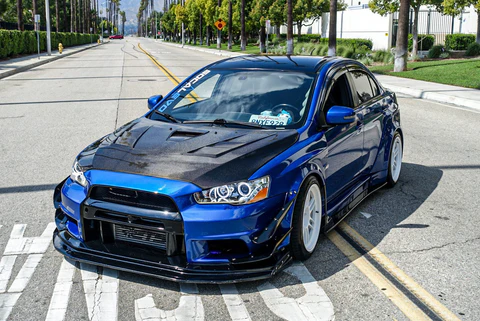
What To Consider When Buying A New Turbocharger For Your Vehicle
When you're choosing a turbocharger for your car, the choices are endless. There are so many variables to consider—how much horsepower do you need? How much torque? What's the cost of installation? And what about fuel efficiency?
But no matter how well-informed an engine builder you are, it can be tough to make a decision that fits all of your needs. So, we've put together this small guide to help you decide which turbocharger is right for your car and budget - with this information, you'll be that much closer to making an informed decision that'll keep you and your car going further, stronger.
Shop all turbochargers in our store!

1) Set A Realistic Goal For Your Turbo
Turbocharger upgrades are one of the most effective ways to increase your vehicle's horsepower. When selecting a new turbocharger, it's important to have an end horsepower goal in mind.
Not only will this help you choose an appropriate size, it will also help determine how many supporting modifications you may need to accompany the turbo itself - this can include additional fuel, driveline modifications, and in some cases, internal engine modifications.
That may sound intimidating, however, there is good news. Many turbocharger manufacturers make the selection process easier by listing estimated horsepower ratings for you. We recommend doing plenty of research up front before purchasing to ensure the turbo you select meets your needs. If you have questions along the way, we'd be happy to guide you through the process. Don't hesitate to reach out to our build experts (via phone or email) at any time!

2) Choose A Turbocharger That Fits Your Driving Needs
If you're looking to upgrade your car, choosing the right turbocharger can have a big impact on how it performs. The most important thing is to make sure that the turbocharger you choose matches your driving needs.
What Are The Different Types Of Car Turbochargers?
There are three main types of turbochargers to be aware of, and they each bring different benefits and advantages to the table.
1) Single-scroll turbos — These compressors only have one scroll, which means they're more efficient at high RPMs but less so at low RPMs. They're best for cars that spend most of their time on the highway, not in stop-and-go traffic.
2) Twin-scroll turbos — This type of turbo has two scrolls. It's not as efficient at high RPMs as a single scroll, but it is better suited for lower revs.
3) Variable vane turbos — The variable vane turbo uses vanes that open up as it compresses air, which helps reduce lag when starting from a standstill. This type of turbo works well in both high-RPM environments and low-RPM environments, making it ideal for all types of driving conditions.
In addition, you should also consider things like how you use your vehicle and whether or not you need it to be able to handle high-RPM situations. Moreover, how much traction you need for off-road driving and how often you drive on highways or in stop-and-go traffic are important factors to consider. If you want a turbo that's able to handle both high RPMs and low RPMs, then a variable vaned turbo is your best bet.
Read More: What Are The Best Turbocharger Brands?

3) Make Sure Your Car Can Handle The New Power
You'll want to do some calculations before you purchase a new turbocharger. For example, if you're looking for more horsepower and torque, you'll need to make sure your engine can handle the stress of running at higher RPMs. The same goes for boost pressure: If your car isn't designed to sustain high levels of boost pressure (the amount of air that flows into the engine), it could damage the internals of your engine and cause major problems down the line.
You should also be aware that turbochargers have varying degrees of volumetric efficiency (VE). This refers to how tightly packed together all of the parts inside your engine are—and what happens when they aren't packed together tightly enough. Too much VE can result in poor fuel economy and less power output; too little VE will produce less power than expected from an otherwise-capable turbocharger.
Choosing a turbocharger is not something you should do lightly; it's an investment in both money and time that will affect your vehicle's performance for years to come! Before making any decisions, we recommend that you speak to a professional mechanic and ask them what kind of turbocharger would be best suited to your vehicle. They'll be able to help you choose the right one based on your needs and budget.

How Much Does A Good Turbocharger Cost?
Turbochargers are intricate and expensive pieces of machinery. They're made up of many different parts, all of which must be constructed with extreme precision and quality in order to ensure reliability and performance. This is why it's so important to choose a reputable company when buying a turbocharger for your vehicle! But in general, the overall cost of a turbocharger can range anywhere from $500 to $5,000 or more.
This price will depend on many different factors, including the type of vehicle you own and how much horsepower you want it to produce. You should also consider any other replacements that might be required after installation in order to get your vehicle back up and running at optimal performance levels.
Shop all turbochargers at MAPerformance
Shop The Best Turbos On The Market For Your Car At MAPerformance
Whether you're a seasoned vet or brand new to the track game, we're here to help get you moving in the right direction. Check out our store page today and find the turbochargers that best suit your car build - from there, we can get you set up with financing, free shipping and award-winning customer service so you can rest assured you'll have the best performance possible under the hood.





Comments (0)
There are no comments for this article. Be the first one to leave a message!